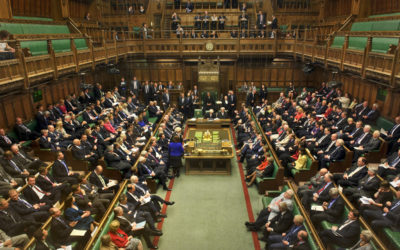Armed forces report reveals MPs’ confusion over recruitment of under-18s
ForcesWatch press release
The report by the House of Commons Committee on the Armed Forces Bill has rejected proposals to raise the minimum age of recruitment to 18. But ForcesWatch, an NGO that submitted evidence to the Committee, suggests that the wording of the report reveals a lack of clarity over the law in this area, even among MPs and senior military personnel.
Today’s report by the House of Commons Committee on the Armed Forces Bill has rejected proposals to raise the minimum age of recruitment to 18 (1). But ForcesWatch, an NGO that submitted evidence to the Committee, suggests that the wording of the report reveals a lack of clarity over the law in this area, even among MPs and senior military personnel (2).
The Committee reported that they have “raised concerns with the Deputy Chief of Defence Staff, Lt Gen. Sir William Rollo, who clarified the MoD?s position regarding the discharge of unhappy minors”.
But ForcesWatch suggests that William Rollo’s evidence was itself unclear. He said that there is a “a window at 18, for a further three months, where they [forces personnel] can apply to leave”. It is unclear which provision this refers to.
In law, a Discharge As Of Right (DAOR) applies to recruits under 18 for only the first six months of service. After this, those aged under 18 years and three months may ask to leave under the “unhappy minors” provision. But they have no legal right to leave if their request is refused.
Emma Sangster of ForcesWatch said:
“The UK is one of only twenty countries in the world to routinely recruit 16-year-olds into the armed forces. The others include North Korea, Iran and Zimbabwe.
“Given that the Committee has rejected international opinion on the recruitment of minors, it is alarming that their conclusions seem to be based on unclear evidence (3). They quote William Rollo, Deputy Chief of Defence Staff, but his own evidence to the Committee appears to refer to a voluntary provision as if it were a legal entitlement.
“Now that the report has been published, the Armed Forces Bill will be discussed by the whole House of Commons. It is vital that MPs scrutinise the way in which the Committee reached its conclusions.”
ForcesWatch is encouraging MPs to address other concerns neglected by the Committee. The NGO wants to see a greater concentration on the human rights of forces personnel, including a clearer and stronger right to conscientious objection for serving members of the forces, improvements in the terms of service and an inquiry into personnel’s civil and political rights (4,5).
ENDS
Notes
1. The Armed Forces Bill Committee presented its report to the House of Commons today (10 March). An Armed Forces Act is passed by Parliament every five years.
2. ForcesWatch is a network launched in 2010 concerned with ethical issues around armed forces recruitment and the rights of forces personnel.
3. An increase in the minimum recruitment age to 18 has been recommended by the UN Committee on the Rights of the Child and by Parliament’s own Joint Human Rights Committee. It is also supported by Forces Watch, the Coalition to Stop the Use of Child Soldiers, the Children’s Society and the Religious Society of Friends (Quakers).
4. Serving members of the forces legally have a right to apply for discharge if they develop a conscientious objection. However, evidence from At Ease, a forces helpline, suggests that many are unaware of this right. No reference is made to it on the Notice Paper, the contract a recruit signs on joining the armed forces. In December 2010, Michael Lyons, a naval medic who developed ethical objections to the war in Afghanistan, was turned down for discharge due to conscientious objection. For more information on conscientious objection, see, ‘Informed Choice? Armed forces recruitment practice in the United Kingdom’ http://www.informedchoice.org.uk/informedchoice/index.php
5. The minimum length of service for forces personnel is currently four years (over 18s in the army), three years after training (air force) or three and a half years after training (navy). People joining the army before turning 18 are obliged to commit themselves until their 22nd birthday.
See more: legislation & policy, recruitment age, ForcesWatch










